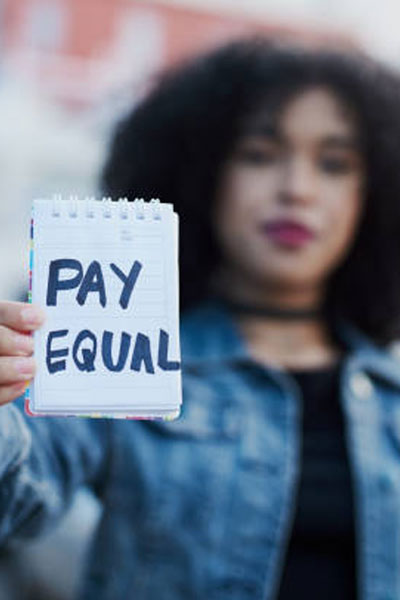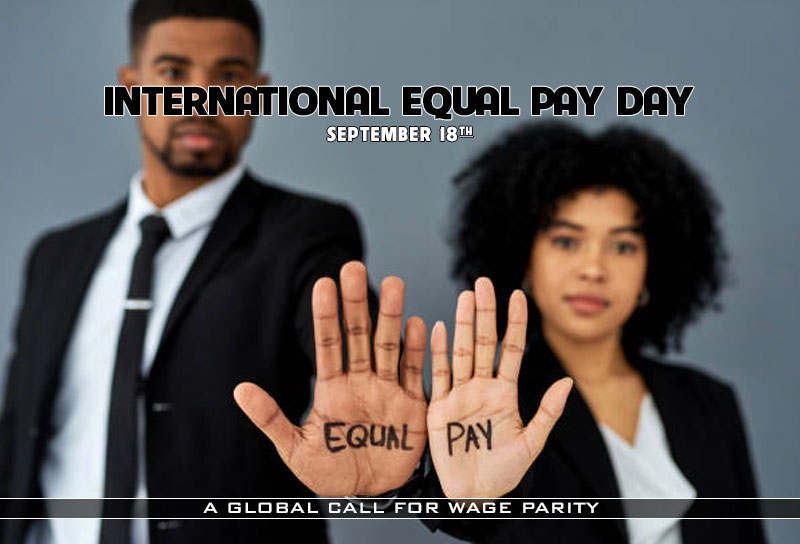Table of Contents
International Equal Pay Day: A Global Call for Wage Parity
International Equal Pay Day, observed annually on September 18th, is a significant global initiative aimed at raising awareness about gender pay disparities and advocating for wage equality. This day serves as a reminder of the persistent gender wage gap that affects women worldwide and emphasizes the importance of taking concrete actions to bridge this divide. In this article, we will explore the significance of International Equal Pay Day, its history, the state of the gender pay gap, and the measures being taken to achieve wage parity on a global scale.
The History of International Equal Pay Day
International Equal Pay Day was officially established by the United Nations in 2019. The date, September 18th, symbolizes the point in the year when the average working woman’s earnings catch up to the average earnings of her male counterparts from the previous year. This implies that women must work almost nine extra months to earn what men did by the end of the previous year. The choice of September 18th is a stark reminder of the substantial gender pay gap that continues to exist worldwide.
The Gender Pay Gap: A Persistent Global Issue
The gender pay gap is a complex issue rooted in historical inequalities, occupational segregation, and discrimination. Despite significant progress in women’s rights and workplace equality over the past few decades, women, on average, continue to earn less than men across the globe. While the size of the gap varies from one country to another, it remains a pervasive problem in both developed and developing nations.
Key factors contributing to the gender pay gap include:

- Occupational Segregation: Women are often concentrated in lower-paying professions and sectors, while men dominate higher-paying fields. This occupational segregation is a significant contributor to the wage gap.
- Unequal Opportunities: Discrimination and biases still hinder women’s access to promotions, leadership roles, and higher-paying jobs. This unequal distribution of opportunities affects their earning potential.
- Unpaid Labor: Women tend to shoulder a disproportionate burden of unpaid caregiving and domestic work, which can limit their ability to engage in paid work and advance their careers.
- Lack of Transparency: Inadequate pay transparency policies in many workplaces make it difficult for women to identify and address wage disparities.
- Motherhood Penalty: Women often face reduced wages and fewer opportunities after becoming mothers, a phenomenon known as the motherhood penalty.
Global Efforts Towards Wage Parity
International Equal Pay Day serves as a platform for governments, organizations, and individuals to come together and address these disparities. Several strategies and initiatives are being employed to work towards wage parity:
- Legal Reforms: Many countries are implementing or revising legislation to promote equal pay for equal work. These laws aim to eliminate gender-based wage discrimination and promote pay transparency.
- Workplace Policies: Employers are adopting policies that promote diversity and inclusion, including pay equity assessments and anti-discrimination measures.
- Advocacy and Awareness: International Equal Pay Day encourages advocacy and awareness campaigns to highlight the importance of gender pay equality and mobilize public support.
- Educational Initiatives: Promoting STEM education and vocational training for women can help break down barriers in traditionally male-dominated fields.
- Flexible Work Arrangements: Employers are increasingly recognizing the benefits of flexible work arrangements, which can help women balance their careers and caregiving responsibilities.
Conclusion
International Equal Pay Day is a crucial reminder that gender pay disparities persist worldwide, but it also serves as a call to action. Achieving wage parity is not just a matter of fairness; it has broader societal and economic implications. Closing the gender pay gap can lead to increased economic growth, improved living standards, and enhanced gender equality in all aspects of life. As we observe International Equal Pay Day, let us commit to continued efforts to eliminate wage disparities and create a more equitable and inclusive world for all.
Author
Stay connected for new publications, events, and more.







More Stories
Le pape Léon XIV : un pontife historique qui jette un pont entre les continents et les cultures
What Happens When a Pope Dies
Le Prix de la Liberté : 17 Avril 1825, une Ordonnance Injuste. Déclaration de Macron